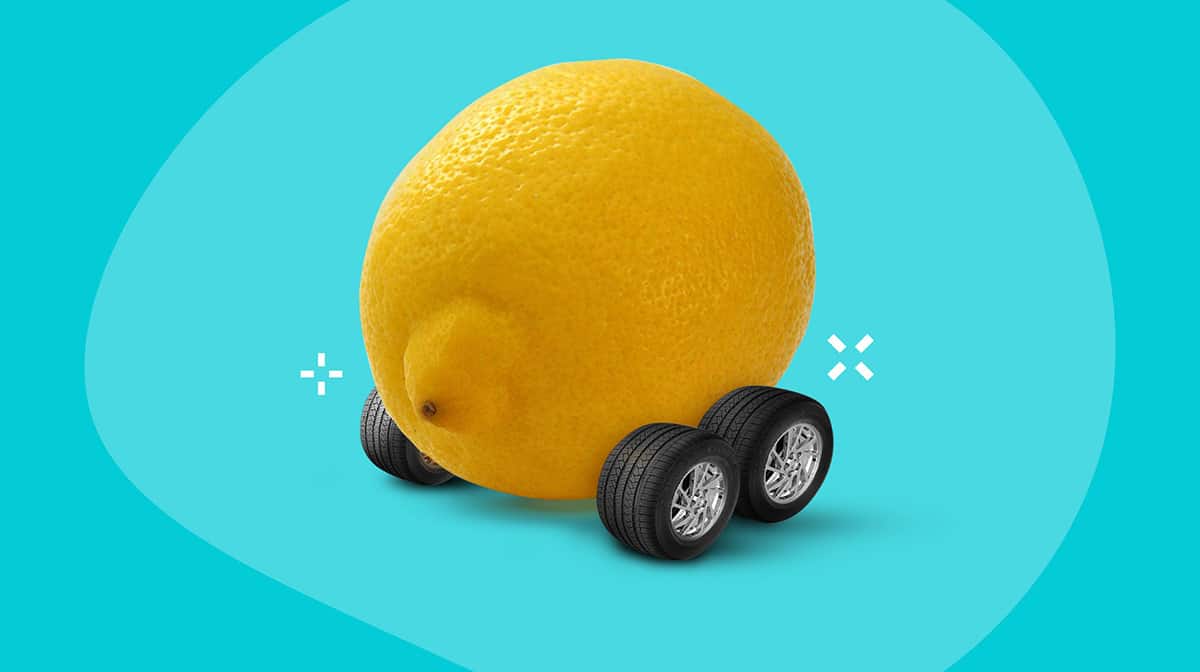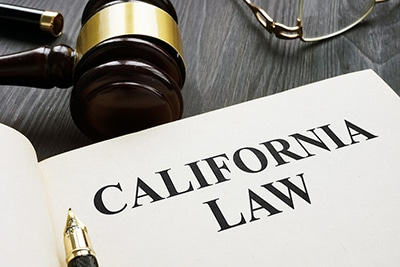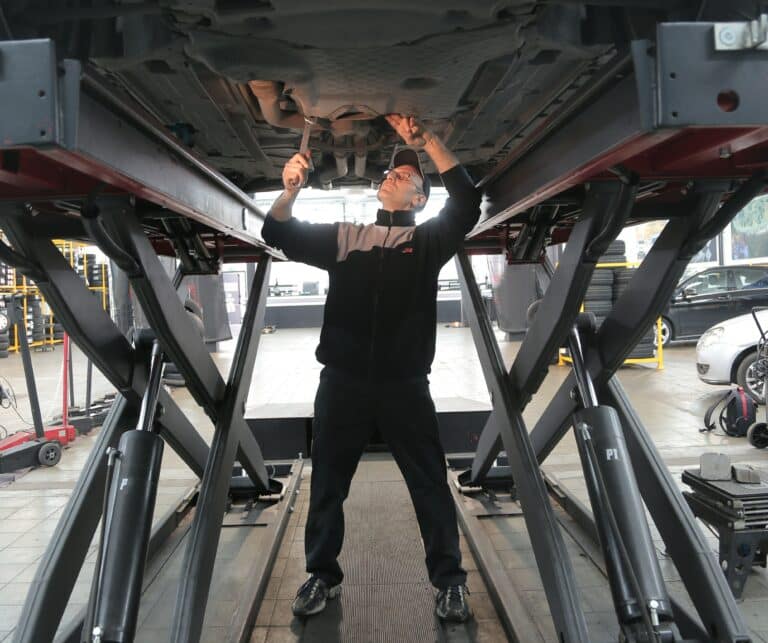
Picture this: you’ve just purchased a new car, excitedly driving it off the lot, only to discover a series of issues that just won’t go away. Frustration mounts as you make multiple trips to the repair shop, and you wonder if there’s any recourse for your ongoing struggles. Enter the California Lemon Law, a beacon of hope for consumers experiencing the nightmare of a defective vehicle. This blog post will guide you through the ins and outs of this consumer protection law, arming you with the knowledge you need to seek justice and compensation for your lemon of a car.
Key Takeaways
- California Lemon Law provides legal remedies for consumers who have suffered financial burden due to the purchase of a defective vehicle.
- A successful lemon law claim requires proof of a defective vehicle and that the manufacturer failed to fix it after reasonable repair attempts.
- Legal representation can provide protection and assistance with claiming rightful compensation for a defective vehicle under California Lemon Law.
Understanding California Lemon Law
Enacted to protect consumers from the financial burden of defective vehicles, California Lemon Law, a specific California law, provides a legal remedy for those who have made unsuccessful repair attempts on their faulty cars. This law allows consumers to seek compensation for their troubles, either through a buyback or a replacement vehicle, by holding manufacturers accountable.
But what exactly constitutes a defective vehicle, and how do you know if you have a valid lemon law claim?
Purpose of the Lemon Law
The California Lemon Law’s primary function is to make manufacturers accountable for defective vehicles and to compensate affected consumers. This means that as a consumer, you have the right to seek legal action against the manufacturer or dealer of a defective vehicle, ensuring they uphold their responsibilities under the car’s warranty.
But what types of defects are covered under California’s Lemon Law? Issues that reduce the value, usability, or safety of motor vehicles may qualify for lemon law protection. For example, a subpar paint job could impact resale value, while an electrical system issue affecting headlights or brake lights could pose a safety risk.
Scope of Protection
California Lemon. Law covers a wide range of vehicles, including new and used cars, trucks, and SUVs with warranties. However, there are some exclusions to this law. For instance, pre-owned motorcycles, certain off-roading vehicles, and specific motor homes are not covered under the California Lemon Law.
For a lemon law claim to be valid, the vehicle should be less than 18 months old or have less than 18,000 miles, and must be purchased or leased within California. Familiarizing yourself with the specifics of your state’s lemon laws is beneficial, given the variations in scope and protection.
Key Components of a Lemon Law Claim
A successful lemon law claim hinges on two main factors: proving that the vehicle is indeed defective, and demonstrating that the manufacturer failed to fix it after a reasonable number of repair attempts.
What defines a defective vehicle, and how do you ascertain if the repair attempts were reasonable?
Defect
A defective vehicle, as defined by the California Lemon Law, is one that has significant problems affecting its use, value, or safety, and is still covered by an active warranty. These issues can include:
- compromised acceleration
- faulty mirrors
- malfunctioning airbags
- defective brakes
Recording any defects you encounter with your vehicle is vital as this evidence will significantly strengthen your lemon law claim. Keeping detailed records of your repair attempts, along with any correspondence with the dealer or manufacturer, will help you demonstrate the severity of your vehicle’s defects.
Reasonable Repair Attempts
When it comes to determining what constitutes a reasonable repair attempt, multiple factors come into play, such as the number of repairs, time spent out of service, and the severity of the defect. It is not legally defined, however, it is assumed that within 18 months of delivery or 18,000 miles, whichever comes first, a reasonable number of repair attempts would have been made. This is the general assumption.
If your vehicle has been out of service for more than 30 days, you may be entitled to a repurchase or replacement from the manufacturer as a result of having a lemon. Maintaining a record of all repair attempts and their results is essential as it helps in structuring your lemon law case.
New vs. Used Vehicles in Lemon Law Claims
California Lemon. Law applies to both new and used vehicles, but there are specific requirements for each type of vehicle. New vehicles typically come with express written warranties, making it easier to establish a lemon law claim. California lemon laws play a crucial role in protecting consumers from defective vehicles.
When shopping for a new or used vehicle, it’s important to note that used vehicles may be eligible for lemon law protection if they have a valid warranty and meet the relevant criteria for being considered a lemon vehicle.
New Vehicles
For new vehicles, the lemon law claim process is more straightforward. The manufacturer is responsible for honoring the express written warranty that comes with the vehicle, and any defects that arise during the warranty period are eligible for a lemon law claim.
If you experience any issues, bringing your new vehicle to an authorized dealer or repair shop while still under warranty is a critical step towards a successful claim. This way, the manufacturer cannot contest that the issue was caused by unauthorized or unreasonable use of the vehicle.
Used Vehicles
While used vehicles can also be covered by the lemon law, the process can be more challenging. Used vehicles are eligible for lemon law protection if they have a warranty and meet the same criteria as new vehicles, such as being purchased or leased within California and having a registration issued in the state.
Pursuing lemon law claims for used vehicles sold privately or without warranties can be more challenging. Reviewing your state’s specific lemon law requirements is crucial for understanding the coverage for used vehicles and the steps required to file a claim.
Filing a California Lemon Law Claim
Filing a California Lemon. Law claims involve several steps, including gathering documentation, understanding the statute of limitations, and seeking legal advice.
Documentation requirements include repair records, warranty information, and proof of purchase or lease. The statute of limitations for California Lemon Law claims is four years from the date the defect was discovered.
Documentation Requirements
To file a California Lemon Law claim, you’ll need to gather various documents, such as:
- The original purchase or lease documents
- Manufacturer’s warranty
- Repair paperwork
- Any pertinent evidence like photographs or videos
Having a thorough record of your vehicle’s issues and repair attempts will be crucial in building a strong case and seeking compensation.
Statute of Limitations
The clock is ticking when it comes to filing a California Lemon Law claim. You must file your court complaint within four years of becoming aware of the defect. Although this may seem like a generous timeframe, acting promptly is vital to prevent missing the deadline and jeopardizing your chance at compensation.
Filing a claim can be a complicated process, and it’s important to understand the process.
Remedies Under the California Lemon Law
If your lemon law claim is successful, California Lemon Law offers two remedies for consumers: lemon buyback and replacement vehicles. Both options have their advantages and drawbacks, so it’s crucial to understand the specifics of each remedy to make an informed decision.
For example, a lemon buyback requires the manufacturer to repurchase the vehicle from the consumer.
Lemon Buyback
Lemon law buyback involves the manufacturer refunding the purchase or lease cost, including additional fees, and may also include reasonable attorney fees. This option allows you to recoup the costs of your defective vehicle and start fresh with a new car. Various fees and charges, such as tow expenses and sales tax, may also be eligible for reimbursement as part of the buyback plan.
Although a lemon buyback might appear to be the most attractive option, consulting a lemon law attorney before finalizing your decision is crucial. Individual circumstances might influence the most suitable course of action for your claim.
Replacement Vehicle
The replacement vehicle remedy provides a substantially identical model with the same specifications, service contract, and warranty period. This option allows you to trade in your defective vehicle for a new one without having to go through the hassle of purchasing a new car yourself.
In addition to receiving a new vehicle, you may also be eligible for reimbursement of tow expenses and rental car costs incurred during the claim process. Nevertheless, before deciding on the ideal remedy for your situation, it’s crucial to consult a lemon law attorney, as individual circumstances might dictate the most suitable course of action.
The Role of a Lemon Law Attorney
A lemon law attorney can provide the following services in lemon law cases:
- Evaluating your case
- Providing guidance and advice
- Representing you throughout the claim process
- Negotiating with manufacturers on your behalf
Their expertise and experience can be invaluable in navigating the complex process of filing a lemon law claim.
Engaging a lemon law lawyer, specifically an experienced lemon law attorney, can aid in securing the best possible outcome.
Benefits of Legal Representation
Hiring a lemon law attorney offers numerous benefits, such as:
- Case evaluation
- Assistance with documentation
- Negotiation with manufacturers
- Protection under attorney-client confidentiality
Additionally, lemon law attorneys typically operate on a contingency basis, meaning their payment is contingent upon a successful outcome for the client, making it often free to hire a lemon law attorney.
Seeking legal representation can safeguard your rights and ensure you receive the rightful compensation for your defective vehicle. Don’t go it alone – enlist the help of a skilled lemon law attorney to guide you through the claim process.
Frequently Asked Questions
What qualifies for California lemon law?
The California Lemon Law applies if the defects appeared within the manufacturer’s original warranty period, or within 18 months or 18,000 miles of ownership, whichever occurs first.
It also applies if the vehicle has experienced at least two unsuccessful repair attempts, and been in the shop for more than 30 days for any warranty-covered problem.
Does California have a lemon law for used cars?
Yes, California does have a lemon law for used cars which provides protection to buyers of used vehicles who have purchased the vehicle from a dealer or retailer and have had it under warranty.
The used car must also be defective or cannot be repaired after a reasonable number of attempts.
When can you file a lemon law in California?
You have four years from the date of the first failed repair attempt to file a Lemon Law claim in California.
This must be done before the end of your warranty period and prior to four years after you knew or should have known about the warranty problems.
What is the lemon law in California with no warranty?
The “as is” no warranty lemon law in California means that when buying a car, the buyer must be aware that it does not have any warranty protection. Thus, they are taking full responsibility for any issues after driving off the lot.
What types of vehicles are covered under California Lemon Law?
California Lemon. Law covers cars, trucks, and SUVs that have a warranty, both new and used. Motorcycles and motor homes are excluded.









